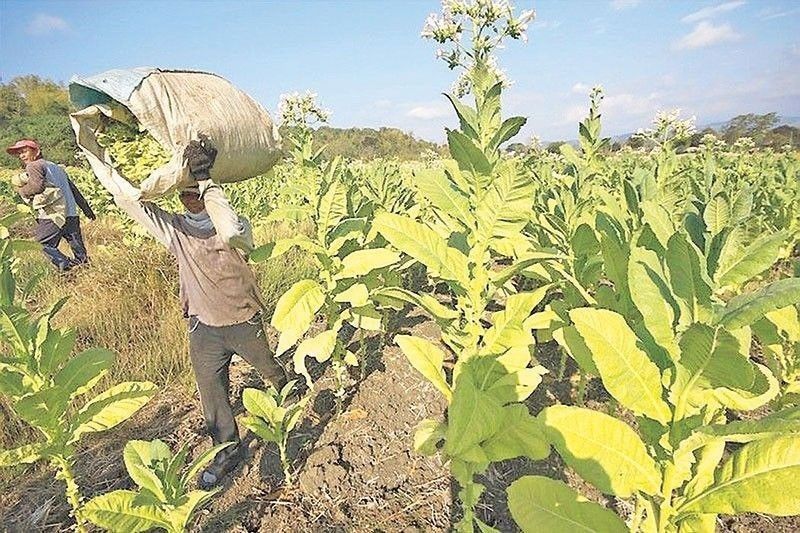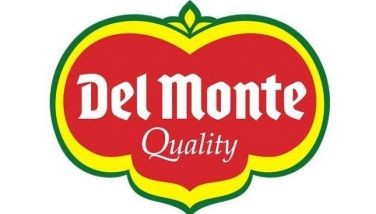Special Report: Tobacco farmers pin hopes on 60-year-old fund

(Conclusion)
The Department of Budget and Management (DBM) has maintained that part of the Tobacco Fund may be tapped as a viable source for the government to fund its priority projects, particularly those that will help boost the agriculture sector and eventually contribute to economic growth.
However, Budget Undersecretary Wilford Wong said there is a need to amend the law first through a recommendation from the permanent committee composed of the Department of Finance, DBM and the Commission on Audit.
General provisions under the General Appropriations Act mandate the reversion of special funds to the general fund when they have remained dormant for an unreasonable length of time, among other reasons.
All income generated from the Tobacco Fund is transferred to the general fund in order to be made available for yearly appropriation by Congress.
Over the past years, Wong said that the DBM had received funding requests from agencies such as the National Tobacco Administration (NTA) and the Bureau of Internal Revenue for their tobacco fund entitlement. For instance, the NTA sought to implement its Sustainable Tobacco Enhancement Program (STEP), a five-year plan aimed at boosting productivity and increasing farmers’ income.
In response, the DBM stated that the use of the Tobacco Fund still forms part of the total approved programmed expenditure of the government for a given year even though it has been automatically appropriated.
“For fiscal prudence, programmed automatic appropriations are valid for release, obligation and disbursement within the budget year only. All unexpended or undisbursed funds shall be reverted at the end of the fiscal year,” Wong said.
Fund releases will also undergo the usual budgeting process for inclusion in the total fiscal program and for the Bureau of the Treasury to properly include them in its yearly cash programming.
As such, the DBM argued that requests should be supported with documents to substantiate their implementation readiness, such as budget execution and corresponding permits and clearances for construction activities, among others.
A futile attempt?
As Congress now deliberates on the 2025 National Expenditure Program, agencies once again try to lobby for a portion of the hundred-billion-peso Tobacco Fund.
For the Tier 1 level of NTA, P550.5 million was approved for its tobacco farmers’ production assistance and other operating requirements. However, its P709.92 million proposal for Tier 2 was not included.
Tier 2 would have funded additional coverage for its tobacco farmers’ production assistance, STEP block farming project, tobacco research and grading institute and improved tobacco seedling production.
Under the government’s two-tier budget process, ongoing spending is considered in Tier 1, and proposals for new and expanded spending are evaluated in Tier 2.
After Tier 1 is completed, the DBM would know what the ongoing spending requirements for existing activities and projects will be for the next three fiscal years. These will be used to update the expenditure plan and fiscal strategy.
The government can then calculate the fiscal space that will be available to fund new projects or scale up existing activities in terms of scope, timing, number or type of beneficiaries, design and implementation method.
Given all these, the 2025 special provision for the Tobacco Fund allocates P550.5 million to be used by the NTA for its operating requirements.
This is sourced from 40 percent of the balance of the entire collection from the specific taxes on locally-manufactured Virginia-type cigarettes and tariff duties on imported leaf tobacco, after setting aside the share of the LGUs and BIR.
High hopes remain
Just like the NTA, the BIR can only hope that funds will eventually be accessed to benefit its operations and help contribute to the higher collection of excise taxes.
This year, the BIR requested P450 million from the fund, lower than its P600-million request. As expected, the revenue agency will not get any amount next year. Will it ever stop asking despite the rejections?
“Just because it’s not happening does not mean we have to stop. One of these days, people will also learn about this. And once we succeed, that’s the time that we will begin to ask for more,” BIR assistant commissioner Jethro Sabariaga said.
The BIR is also planning to appeal to the Special Assistant to the President on Investment and Economic Affairs, Frederick Go, to convince the DBM to release the fund.
Last May, President Marcos called on the BIR and the Bureau of Customs to strengthen efforts in protecting the local tobacco industry against smuggling.
“Honestly, it’s easy to let go of that, it’s an added accountability anyway. But if it will improve the way that I do my job, if it will improve my people, I should continue to lobby for it,” Sabariaga said.
- Latest
- Trending



























